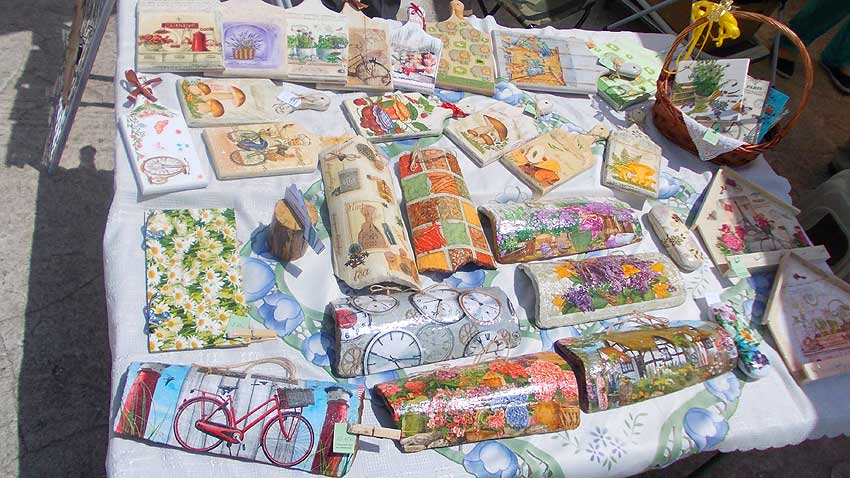 7
7
The summer art season “Art on the yellow paving stones” has now opened in Sofia. Every last weekend of the month, right up to the end of October the festival will present different kinds of applied art and handicrafts. It takes place outdoors, in the City Garden; that is why there are “yellow paving stones” in the festival’s name. Though they have now mostly been replaced, the rectangular paving stones which covered the streets of the city centre for many decades are still the symbol of Sofia’s historic centre. The area where the improvised stores, workshops and stalls have been put up lies inside the space where the mausoleum once stood. During the festival visitors coming here will be able to see pottery, jewellery, hand painted scarves and other items of clothing, knitwear, works of art made of leather, glass and wool. And they are all hand-made. The festival is organized by Antonia Balabanova, with the assistance of the Regional Chamber of Handicrafts, Sofia. “Take a piece of the artist’s heart home,” says Mrs. Balabanova:
“Throughout summer – from June until October we afford craftsmen an opportunity to display their works. And everything goes to charity, to the Children foundation which provides support to children from institutions so they can broaden their social parameter. We work with all kinds of people – volunteers, experts and they are all highly motivated. Most of the participants in the festival are qualified master craftsmen with certificates from the National Chamber of Handicrafts. But even non-professionals are here creating their works with their hands but also with their heart. One of the ideas behind the festival is to preserve Bulgarian arts and crafts and to promote a “creative economy”. They are all people who make their living from the things they sell. On the very first day we had a great many people coming here – from Bulgaria and abroad, from Sofia and from the country. We are organizing children’s workshops where they can make soap, pottery, figures out of paper, dolls, with their own hands. Their parents can also try their hand at making something. I myself have a passion for pottery. My profession is very different – I have been manager of a chain of high-end restaurants for many years, I also translate scientific technical books. To an amateur like myself, applied arts provide more than just aesthetic pleasure, they are therapeutic as well. When I sit down at the pottery wheel I can feel the strain and stress draining out of me through my fingers.”

A great many of the craftsmen presented over the first weekend of the festival actually carry the torch of Bulgarian tradition. There were even herb cosmetics, organic and vegan food. More and more master craftsmen, who apply ancient techniques in their craft, are expected to join the festival in the coming months.
English version: Milena Daynova
Photos: Albena Bezovska, BTA, BGNESIn 2021, "The Route of Cyril and Methodius" became one of the 48 European cultural routes , and the Cyrillo-Methodian literary, cultural, and religious tradition received yet another recognition as an inseparable part of the cultural heritage of the..
Starting from the 2025/26 academic year, the Bulgarian language, history, folklore, and traditions will become part of the Bulgarian Studies program at one of the most prestigious higher education institutions in the USA – the University of Illinois ,..
Sofia University "St. Kliment Ohridski", the National High School for Ancient Languages and Cultures "Constantine-Cyril the Philosopher" , the Bulgarian Cultural Institute in Bratislava and the Glagolitica Foundation will be accepted today as full..
An exhibition dedicated to the art of the Bulgarian artist Georgi Baev will open at the Bulgarian Cultural Institute in Prague on 3 July at 6 p.m. The..

+359 2 9336 661
